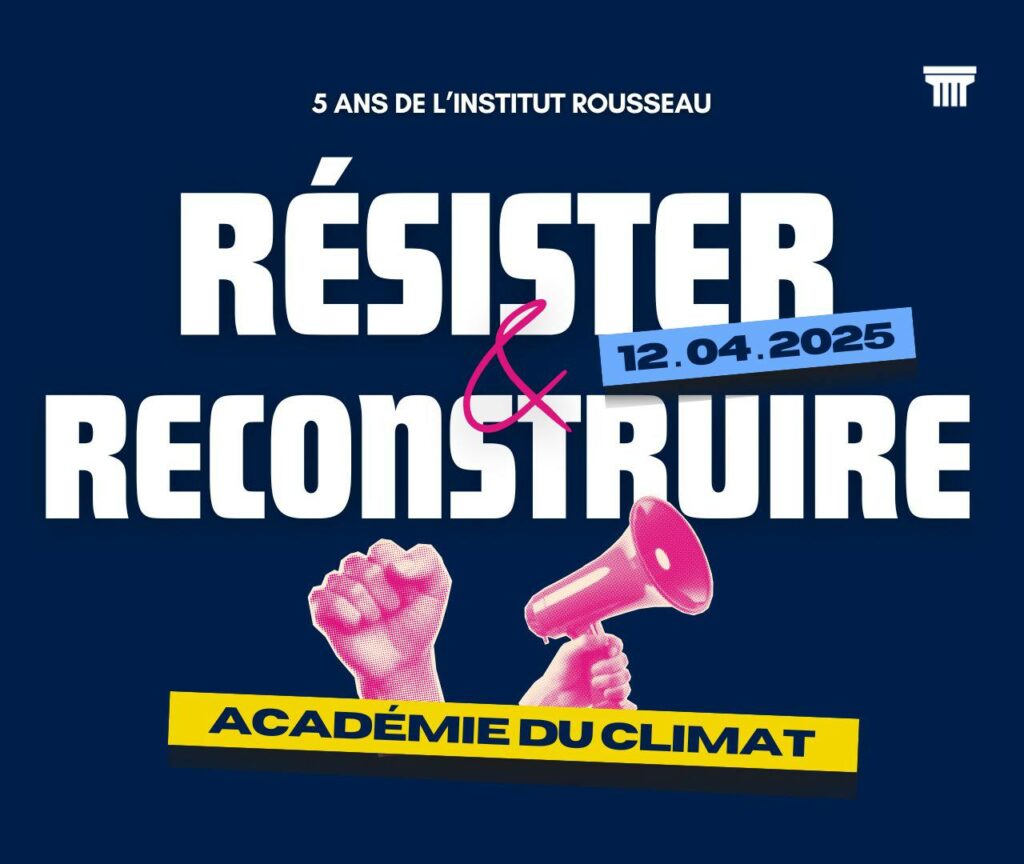Trump a-t-il autorisé Israël à attaquer l’Iran pour sauver ses producteurs de pétrole ?
🇫🇷 🇬🇧 Cette note, publiée aujourd’hui par l’Institut Rousseau, nous a été envoyée le 11 juin 2025, c’est à dire quelques jours avant l’attaque israélienne sur l’Iran dans la nuit du 12 au 13 juin, qu’elle venait, d’une certaine manière, prédire. Il est donc intéressant de relire la perspective développée par l’auteur sur les motivations possibles d’un tel conflit à la lumière des événements observés, en particulier l’idée que les producteurs de pétrole américains ont un intérêt direct à une remontée des prix du pétrole sur le marché international. En effet, depuis 2017 les États-Unis sont ainsi devenus le premier producteur mondial de pétrole et de gaz. Mais l’exploitation du pétrole et du gaz de schiste a un coût marginal plus élevé que celle du pétrole traditionnel exploité par l’Arabie Saoudite ou la Russie, lesquels tentent de faire plonger le prix du pétrole, depuis quelques années, au-dessous du seuil de rentabilité des producteurs américains, dans une stratégie de « last man standing ». Cet élément de la géopolitique de l’énergie a-t-il été un facteur déterminant dans l’attaque israélienne contre l’Iran ? Depuis l’attaque, le prix du pétrole a ainsi nettement augmenté. Retrouvez le texte en version anglaise originale en cliquant ici Une frappe israélienne contre les infrastructures nucléaires iraniennes pourrait-elle n’avoir presque rien à voir avec la géopolitique du Moyen-Orient, mais tout à voir avec le prix du pétrole de schiste dans l’État américain reculé du Dakota du Nord et les besoins politiques immédiats de Donald Trump ? Une série de faits documentés nous amène à nous poser ces questions. Si l’on se rappelle de la campagne électorale de Trump et de son slogan phare (« Drill-Baby-Drill » [fore bébé, fore !]), on peut s’interroger sur le fait de savoir si les « cow-boys » du pétrole de schiste, qui ont soutenu Trump, pourraient aujourd’hui se sentir trahis ? Ce pétrole, qui a au mieux un avenir incertain dans un contexte de transition écologique, se heurte-t-il à une offre excédentaire absolument certaine ? Pourquoi le goulet d’étranglement que connaît la production de pétrole, d’une évidence aveuglante, devrait être au cœur du débat ? Et enfin, pourquoi la crédibilité chancelante de Trump aux États-Unis pourrait jouer un rôle majeur dans cette problématique économique ? La plupart des analyses relatives à une éventuelle frappe israélienne sur les installations nucléaires iraniennes se focalisent sur l’analyse géopolitique du Moyen-Orient. Dans Le Monde du 23 mai 2025, ou pouvait ainsi lire : « Benyamin Nétanyahou est apparu bien isolé durant la tournée de Donald Trump, du 13 au 16 mai, dans le Golfe. Lors du retour du républicain à la Maison Blanche, le premier ministre israélien s’imaginait en tête de proue d’une reconfiguration régionale – un nouveau Moyen-Orient débarrassé de la menace de l’Iran et de ses affidés – par la force, dans le prolongement de la guerre qu’il mène dans la bande de Gaza depuis octobre 2023. Il n’a pu qu’acter le fossé grandissant avec le président américain, qui se voit en « faiseur de paix » et en « unificateur » au Moyen-Orient, et fait désormais d’un accord avec l’Iran la clé de voûte de sa vision pour une paix régionale. »[i] Drill-Baby-Drill et les frackers texans Quel que soit le projet de Donald Trump pour le Moyen-Orient, il s’est surtout présenté aux élections avec le slogan « Drill-Baby-Drill », avec pour objectif la « domination énergétique » des États-Unis. Cela implique notamment une augmentation massive de la production de pétrole américain, c’est-à-dire plus de recours à la fracturation hydraulique. En la matière, les meilleurs espaces sont le bassin permien, qui s’étend en grande majorité sous le Texas, et la formation Bakken, sous le Dakota du Nord[ii]. La fracturation hydraulique, sous l’administration Biden, défenseur des énergies renouvelables, avait ironiquement fait des États-Unis, grâce à ces réservoirs, le plus grand producteur de pétrole au monde. Selon les données publiées par le NASDAQ, en 2024, les États-Unis produiront 21,91 millions de barils par jour, soit presque le double de l’Arabie saoudite (11,13 millions de barils par jour).[iii] Pourtant, le nombre de forages a diminué au lieu d’augmenter sous la politique du « Drill-Baby-Drill » de Trump. Pourquoi donc ? En partie en raison de la forte augmentation des coûts de forage. De surcroît, les droits de douane appliqués de manière erratique par Trump ont conduit au renchérissement de l’acier et de l’aluminium importés nécessaires au forage. Aucun producteur pétrolier américain n’est satisfait de cette situation. Le PDG de Chevron, Mike Wirth, a choisi la plus importante tribune de l’industrie pétrolière américaine pour dénoncer les caprices douaniers de Trump : lors de sa prise de parole lors de l’immense conférence annuelle de l’industrie pétrolière à Houston, Wirth a fustigé Trump : « Passer d’un extrême à l’autre n’est pas la bonne politique… Il nous faut vraiment une politique cohérente et durable. »[iv] « Drill Baby Drill » et la stratégie du « dernier survivant » Les forages américains ont également subi la concurrence d’autres acteurs qui savent jouer à « Drill Baby Drill ». Le 3 avril, la coalition de producteurs pétroliers menée par l’Arabie Saoudite et la Russie a pris de court les marchés en annonçant pour le mois de mai une augmentation de production trois fois supérieure aux prévisions. Bloomberg.com cite ainsi Helima Croft, responsable de la stratégie matières premières chez RBC Capital et ancienne analyste de la CIA, qui explique que cette hausse vise « à envoyer un signal d’avertissement au Kazakhstan, à l’Irak, et même à la Russie sur le coût de la surproduction persistante ».[v] Mais la stratégie saoudienne va au-delà des volumes produits. Après deux nouvelles annonces d’augmentations de production, Bloomberg rapportait le 1er juin que « selon des sources proches du dossier, Riyad est motivé par la volonté de reconquérir les parts de marché qu’il a cédées au fil des ans aux foreurs de schiste américains ».[vi] En effet, le monde se détourne des énergies fossiles au profit des renouvelables – plus lentement qu’il ne le faudrait, mais de façon inexorable. La moitié des voitures neuves vendues en Chine sont désormais électriques[vii]. Pour l’Agence internationale de l’énergie l’an dernier, la part des énergies renouvelables dans le mix électrique mondial « passerait
Par Bell R.
18 juin 2025


